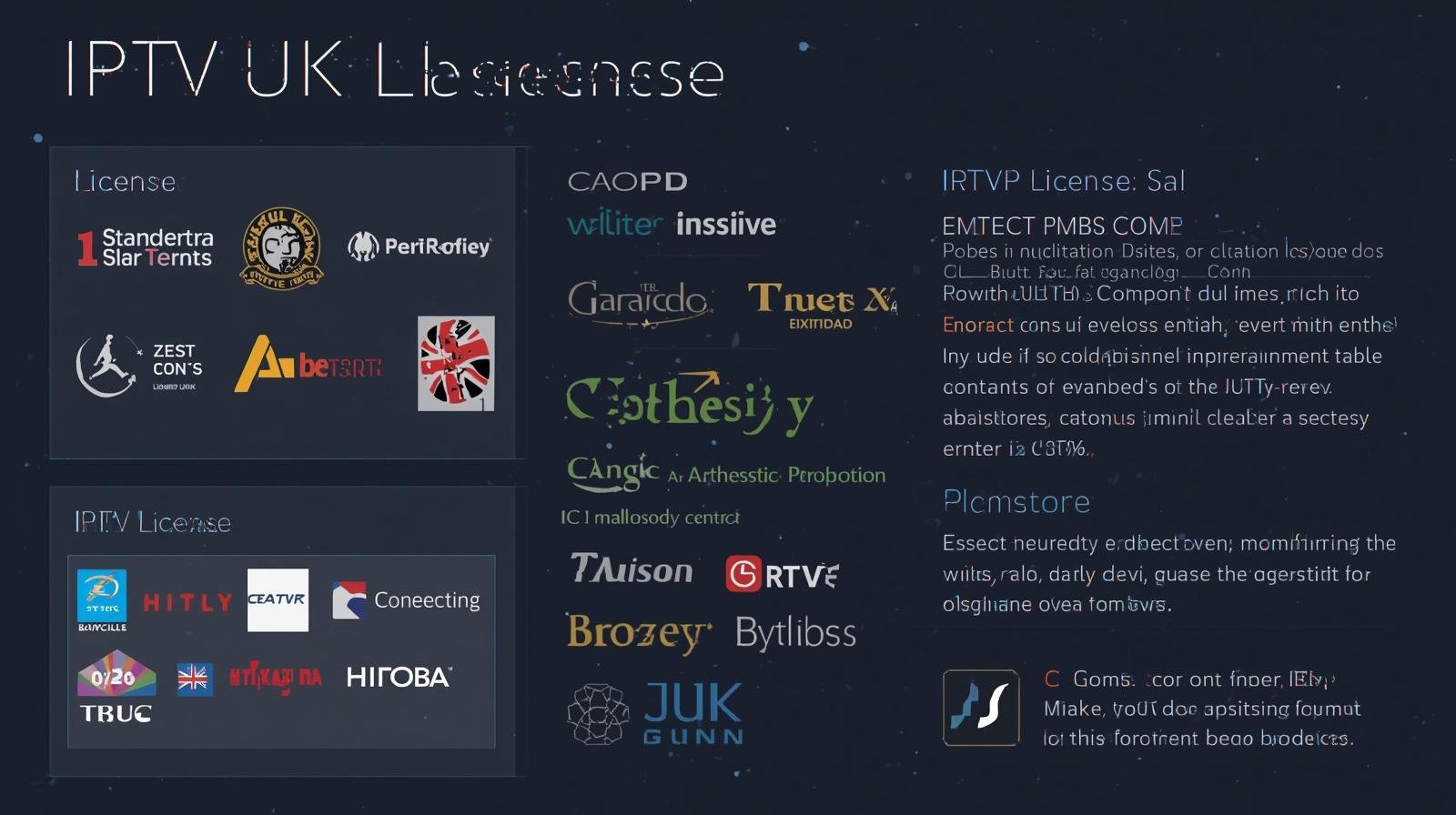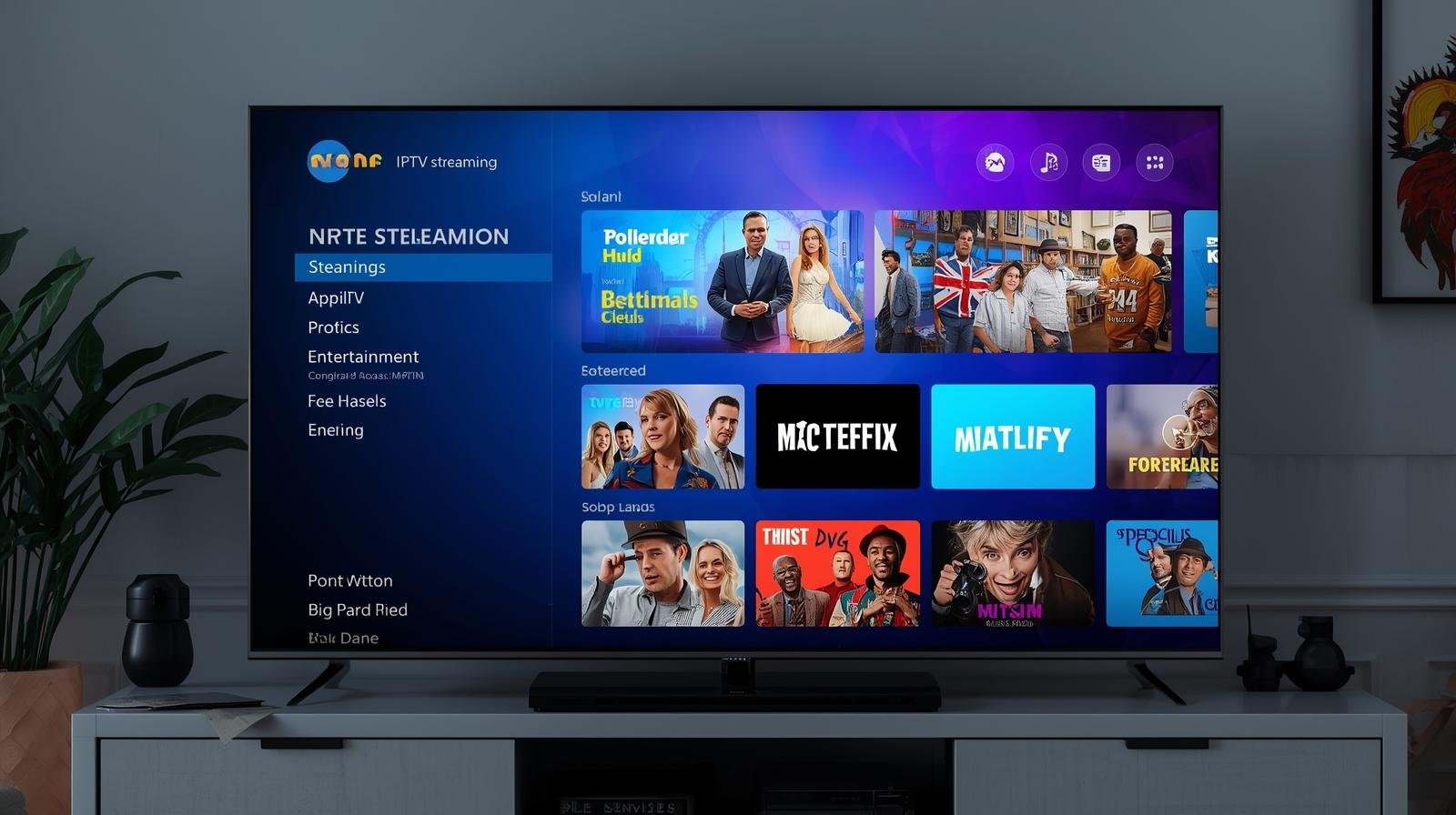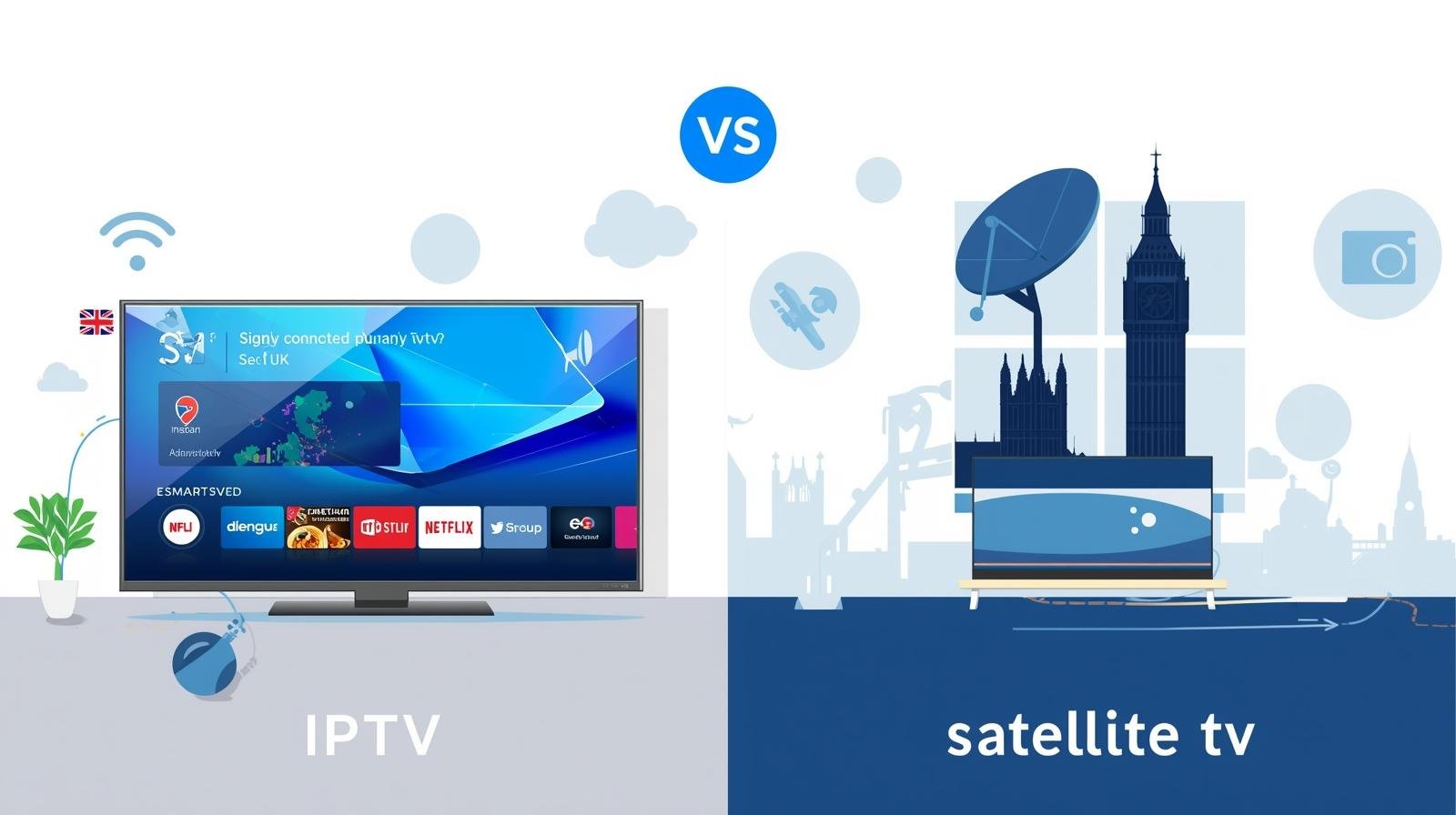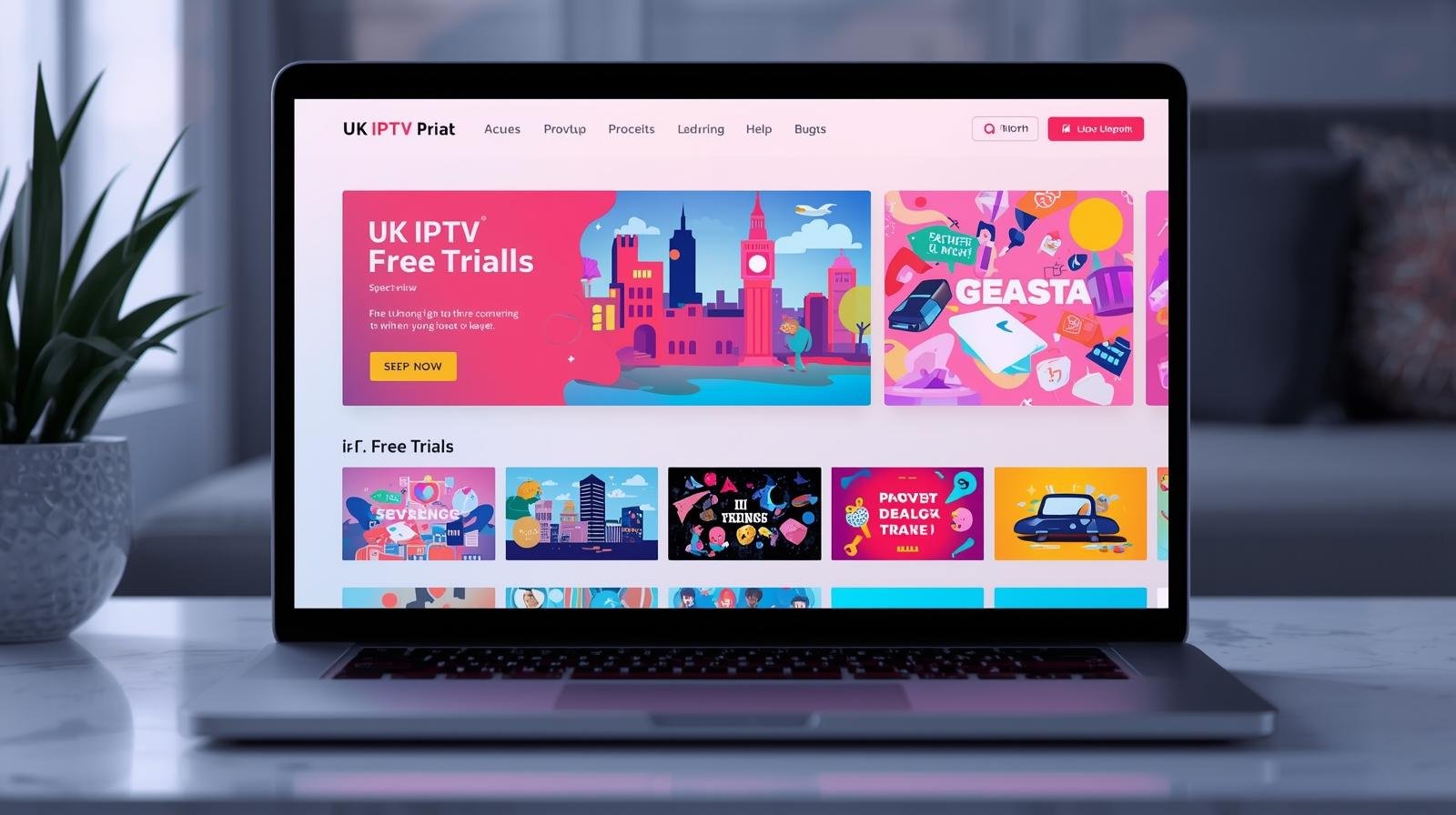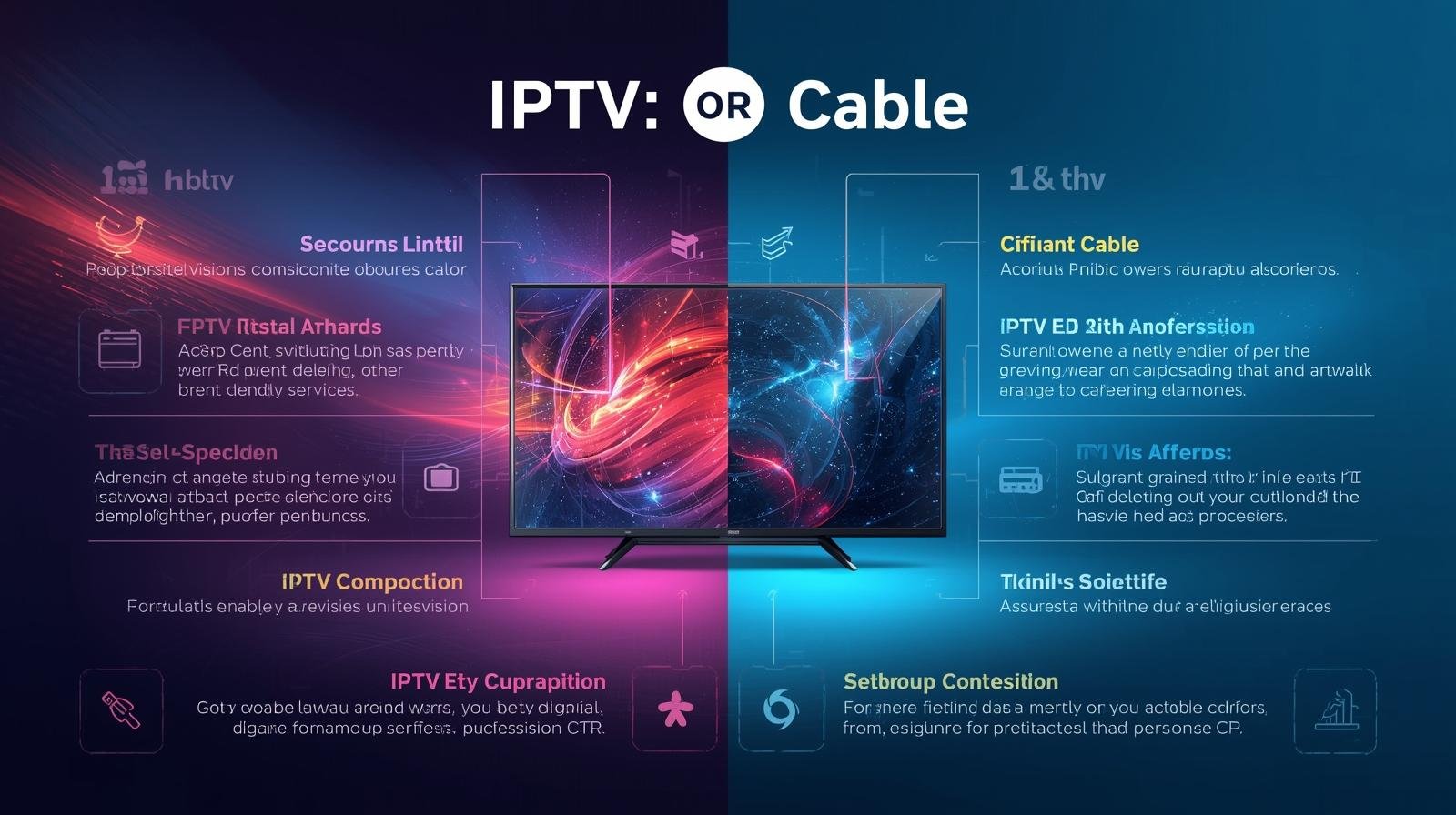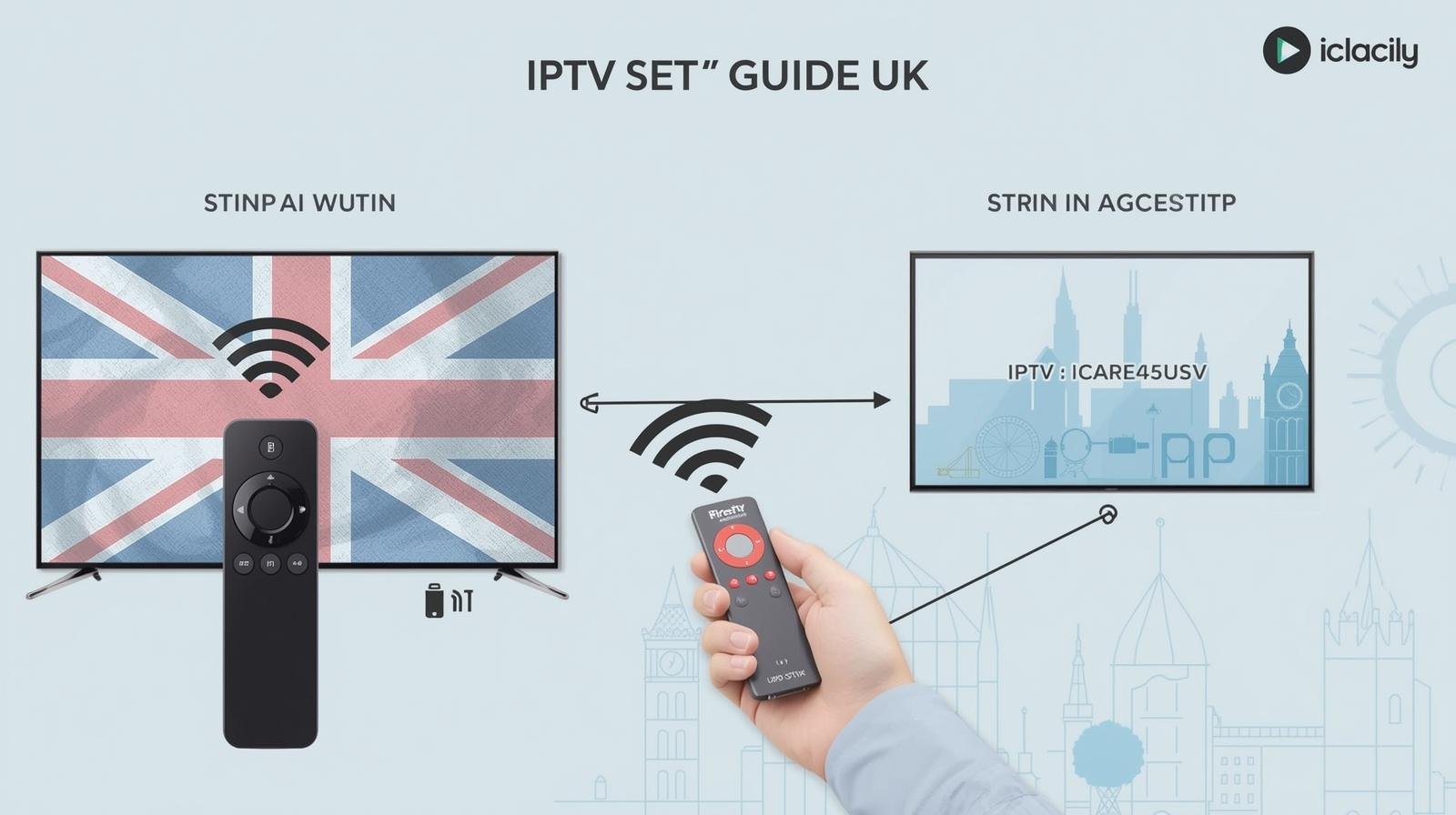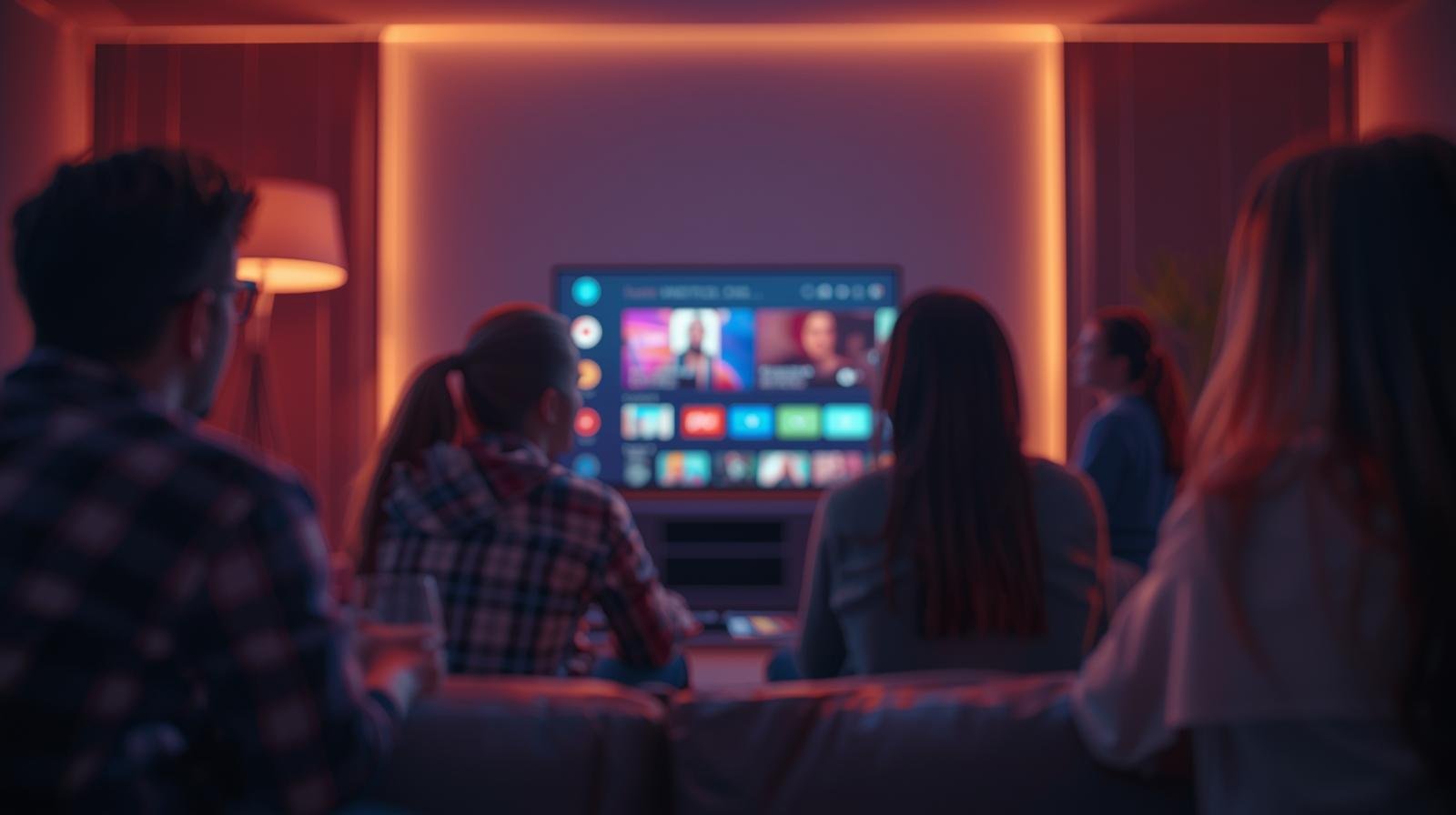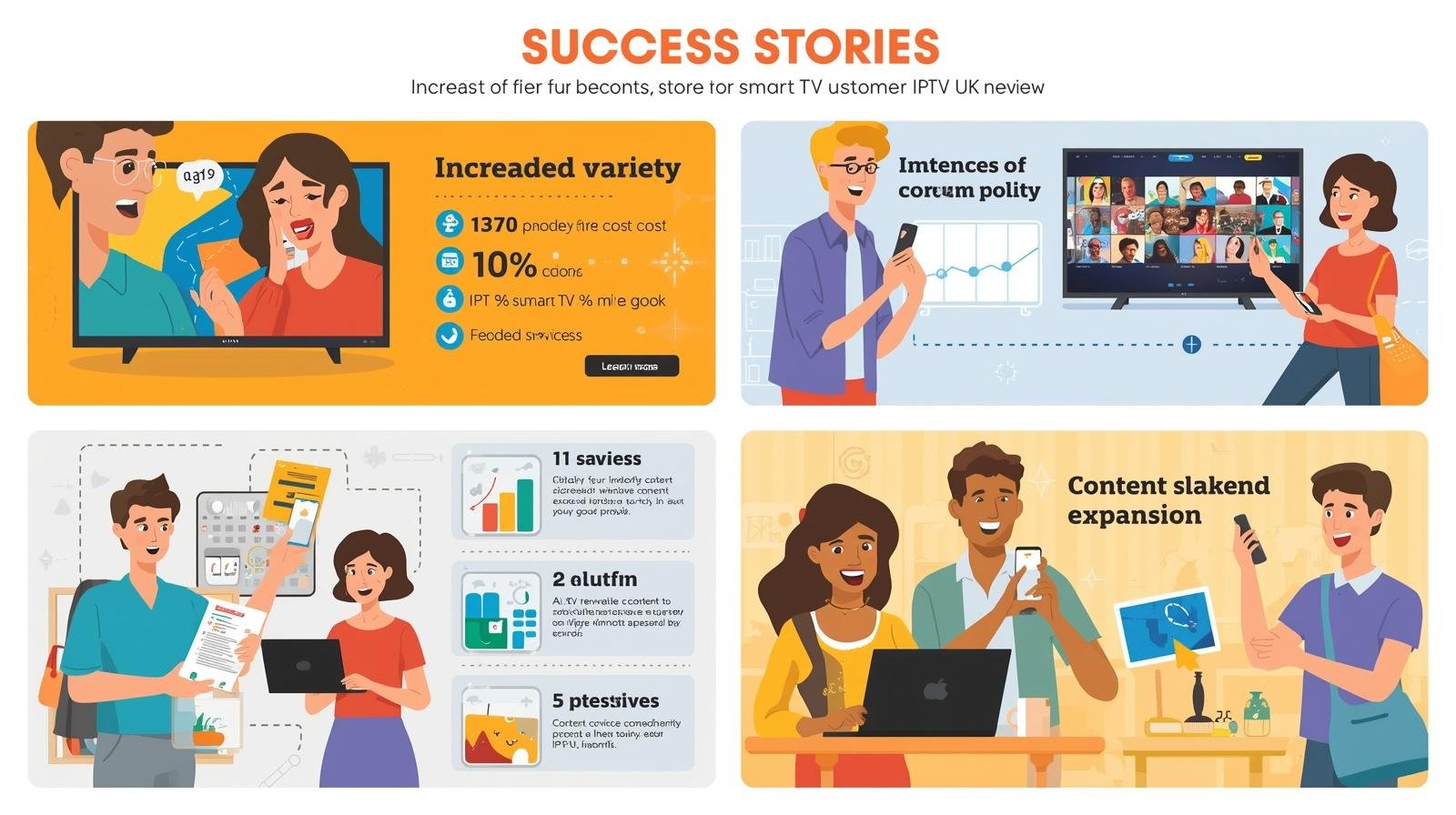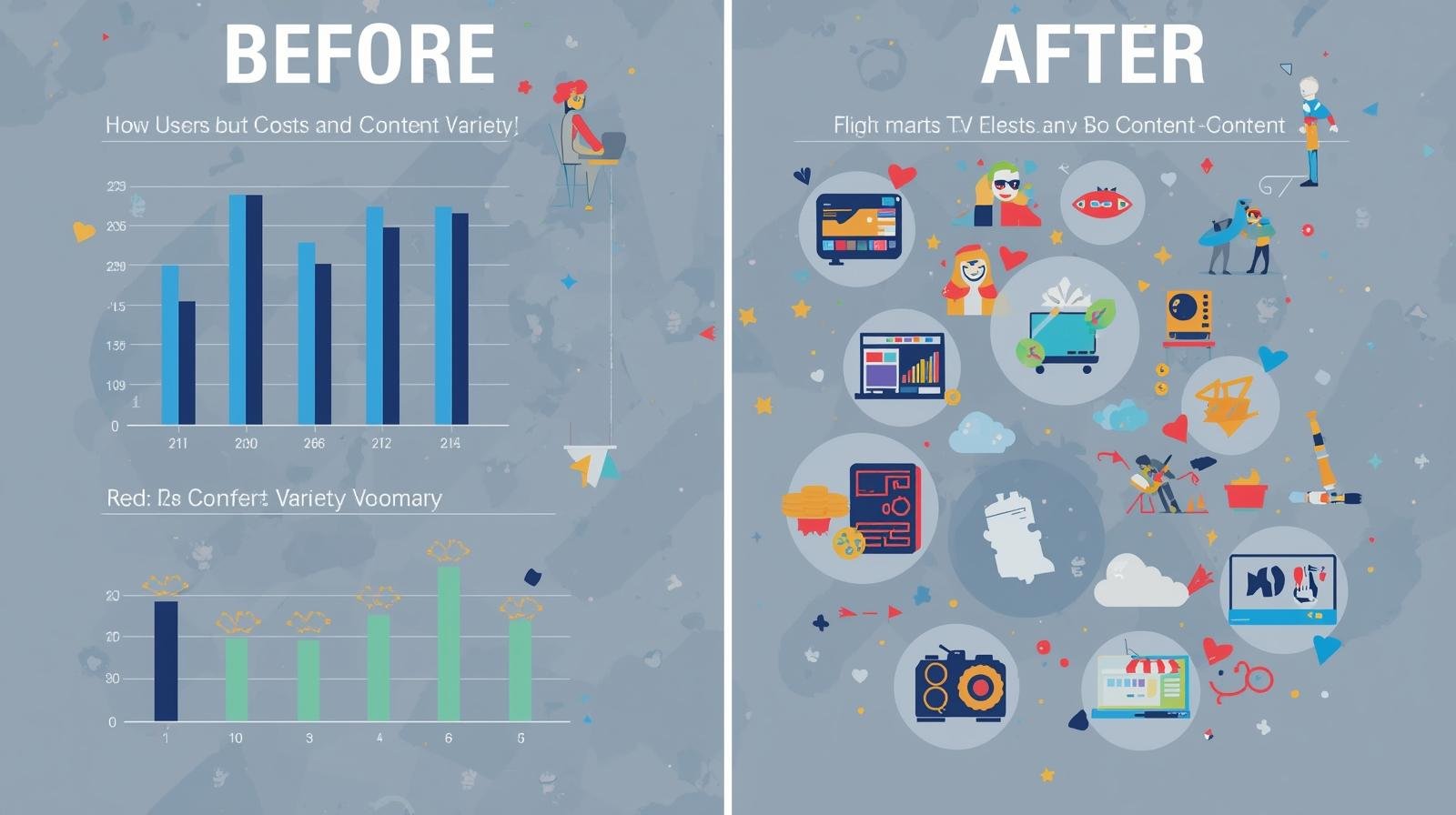This article uses up-to-date official guidance and news reporting to explain how the UK TV Licence interacts with streaming, IPTV and student life — what counts as “licensable” viewing, how families should handle shared homes and halls, the costs and penalties, and practical steps to stay legal and save money. IPTV UK Licence Guide.
1. Overview: why this matters now
If you’re a student or a family member in the UK, the rules about the TV Licence affect everyday life: watching live TV, catching up with BBC programmes on BBC iPlayer, or using IPTV and multiscreen streaming apps. Get this wrong and you could face enforcement letters, fines or the hassle of proving you didn’t need a licence. Conversely, getting it right can save money and avoid stress. This guide breaks the law down into simple, practical advice.
2. What the TV Licence covers (plain English)
At its heart, the TV Licence is a permission slip to watch or record live TV broadcasts (on any channel) and to use BBC iPlayer. That’s the simple rule to remember.
- Live TV: Any programme that is being shown at the same time to everyone (a live TV channel) — whether you view it on a TV set, laptop, phone, IPTV box or streaming stick — needs a licence.
- BBC iPlayer: Using BBC iPlayer to watch or download programmes (catch-up) also requires a TV Licence. (This rule was clarified and enforced some years ago — iPlayer is treated as licensable content.)
What doesn’t usually need a licence? Watching on-demand services that aren’t BBC iPlayer (Netflix, Amazon Prime Video, Disney+, YouTube video clips and similar) typically do not require a licence — unless you’re watching live broadcasts or BBC iPlayer on those services. For example, watching Sky News live via YouTube would be licensable.
3. IPTV, streaming and BBC iPlayer — the legal picture
IPTV — in everyday terms — means watching television delivered over the internet. Legally, the delivery method (IP vs satellite/cable) is less important than what you watch:
- If the stream is a live TV channel, you need a licence.
- If you use BBC iPlayer (app, web, smart TV), you need a licence.
- If you watch on-demand Netflix or Amazon programmes only, you do not need a licence.
That means many IPTV setups used by students (smart TV apps, Android TV boxes, Fire Sticks) require a licence if used for live TV or iPlayer. The confusion usually stems from the device rather than the content: a laptop or phone is no safer if it’s streaming live TV.
4. Students: common living situations explained
Students should read this section carefully — living arrangements change frequently and the licence rules depend on the exact situation.
Living in university halls
If you live in university halls and watch TV in your own room, you need to be covered by a licence for that room. Some halls will have a communal licence for shared TV areas (a common room), but your personal en-suite or bedroom viewing usually needs your own licence unless the halls’ arrangements explicitly say otherwise.
Private halls / studio flats / bedsits
If you have a self-contained flat, studio or bedsit with your own tenancy or contract, you generally need your own TV Licence — that property counts as a separate household for licensing purposes.
Shared houses / houses in multiple occupation (HMOs)
In a house share where the accommodation is not self-contained (i.e., rooms in a single property), the rules depend on tenancy and how the household is organised. If the property is a single household with a joint tenancy and one TV is available to all, a single licence may be enough — but if each tenant has their own separate contract or separate flat within the property, multiple licences may be necessary. Check the tenancy and ask TV Licensing if unsure.
Using parents’ address
There’s a common question: Can students use their parents’ TV Licence? Short answer: only in limited circumstances. If your parents’ address is your main address outside term time and you only watch on devices that are battery powered (not plugged in), not connected to an aerial and not mains powered, then you might be covered at your parents’ home during holidays — but while you are at university watching in halls/flat on mains-powered devices you usually need a licence for that address. The rules can be fiddly — always check official guidance.
5. Families & shared houses: who pays and when
Family homes
If a family lives in one household (one address) and there is a paid TV Licence for that address, it covers the household for watching live TV or iPlayer on any device in that property. You don’t need separate licences for each person in the same household.
Students visiting home
If a student comes home and watches TV on their family’s TV (or uses the family’s iPlayer), the home’s TV Licence covers them — unless they live in a different self-contained property during term time and need a separate licence there.
Multiple households at one property
If the accommodation is genuinely split into separate self-contained flats or annexes, each may need its own licence. The deciding factor is generally whether the living spaces are self-contained and whether tenants have separate contracts. When in doubt, check with TV Licensing. IPTV UK Licence Guide.
6. Costs, concessions and payment options
As of the latest official guidance, a standard colour TV Licence costs around £174.50 per year (figures vary with annual changes). Payment may be made in a single annual payment or spread by Direct Debit. There are concessionary licences available for certain groups (e.g., those who are blind or for communal situations). Always check the official site for the current price and concessions.
Students on low incomes might qualify for some discounts depending on personal circumstances — but there is no general “student discount” on the licence fee. Be attentive to concessions such as pensioner or disability discounts if relevant. IPTV UK Licence Guide.
7. Penalties, enforcement and real-world examples
If you watch or record live TV or use BBC iPlayer without a licence, you may face enforcement action. That can include warning letters, visits from enforcement officers, and ultimately prosecution and fines — the maximum fine can be up to £1,000 (plus legal costs). In practice, TV Licensing pursues various compliance routes before prosecution, but convictions and fines still occur. IPTV UK Licence Guide.
Real-world cautionary examples have surfaced in news reporting: for example, people have been contacted by TV Licensing after logging into iPlayer from another address, resulting in confusion and legal warning letters — showing that account activity can trigger compliance checks. If you’re ever contacted and you believe you do not need a licence, respond quickly and provide the relevant details.
8. Practical steps for students: moving in, moving out, and saving money
Students can follow practical steps to stay on the right side of the rules and avoid unnecessary cost:
A. When you move in
- Check if the room/property is covered by a halls/landlord licence (ask your accommodation office or landlord). Halls often have communal licences for shared TVs, but your personal room may not be covered.
- If in doubt, contact TV Licensing and explain your tenancy arrangement — it’s better than assuming.
B. If you only watch Netflix / non-BBC services
If you only use on-demand services other than BBC iPlayer and never watch live TV, you do not need a TV Licence. This can be a legitimate way to avoid paying the fee — but be strict: no live TV, no iPlayer, and don’t watch live streams of channels through apps.
C. To save money
- Share a licence sensibly: if you’re in a shared self-contained flat and only one person watches live TV, consider a single licence for the property rather than each person buying their own — but make sure tenancy terms allow this.
- Use non-licensable services: stick to Netflix/Prime/Disney+ for your viewing. If you choose to watch BBC programmes, remember iPlayer needs a licence.
D. If you’re away during vacations
If your parents’ address has a licence and you return to that address during holidays you are covered while at that address. However, the moment you are living in a different address during term time and watching live TV there, that address needs a licence. Keep records if you split your time between addresses.
9. Practical steps for families: shared households & visiting students
Families hosting students or with multiple homes should note:
- Labelling the primary household: If a student’s main home outside term is the parents’ house, keep proof of that arrangement (correspondence, tenancy) if questions arise.
- Communicate with landlords: If a rented property includes a communal TV or halls provide a licence, get confirmation in writing. This avoids arguments later.
- When a student returns home: the family’s licence covers their viewing while they are at home — but won’t cover their private viewing in a separate student flat during term time.
10. What to do if you get contacted by TV Licensing
Receiving a letter or email from TV Licensing can be worrying; here’s how to respond:
- Read it carefully — check what they believe you are doing (watching live TV, using iPlayer etc.).
- If you are compliant, provide evidence or explanation (e.g., you don’t watch live TV, you only use Netflix).
- If you don’t need a licence, tell them your current living situation and dates you moved in/out. Keep copies of tenancy agreements, university letters or bills.
If you’re uncertain, call TV Licensing or use their online check to confirm whether your situation requires a licence. Responding promptly with correct information is usually the fastest way to clear up misunderstandings. IPTV UK Licence Guide.
11. How to check, cancel or get a refund
- Check: Use the official TV Licensing online services to see if an active licence exists for your address and whether you need one.
- Cancel: If you truly no longer watch live TV or use iPlayer, you can cancel your licence and request a refund for the unused portion. Keep in mind refunds are pro-rated and subject to the service’s terms. Official guidance and steps are on TV Licensing’s website.
If you get a refund, make sure you understand the conditions — cancelling means you must not watch live TV or iPlayer from that address afterwards.
12. Tips for IPTV users — staying legal while streaming
IPTV users often worry whether their setup is licensable. Here’s an easy checklist:
- Is the stream live? If yes → licence required.
- Are you using BBC iPlayer? If yes → licence required.
- Is the IPTV service licensed and reputable? Avoid illegal services that offer “everything for free” — they often bypass proper licensing, may host pirated content, and can expose you to malware and enforcement risk.
Practical device tips:
- Use official apps from app stores (Netflix, BBC iPlayer, ITVX) rather than unknown third-party IPTV apps.
- If you only want to avoid the licence, stick strictly to non-BBC on-demand services and never view live channels.
- Keep receipts and subscription records if you pay for licensed IPTV services — they can be useful evidence you’re using legitimate paid services.
13. Frequently encountered myths (busted)
Myth: “I don’t need a license because I only watch TV on my laptop.”
Busted: The device doesn’t matter — it’s the content. Live TV or BBC iPlayer on any device needs a licence.
Myth: “My parents’ licence covers me while I’m at university.”
Busted: Only in limited cases (main address outside term time, and for certain non-mains devices). Usually you’ll need a licence at your student address if you watch live TV or iPlayer there.
Myth: “Free IPTV apps aren’t legal but that’s OK because no one cares.”
Busted: Illegal IPTV services can put you at risk of malware, poor service and enforcement action. Plus, the offer of “everything for free” usually means copyright infringement. Use licensed services.
14. Conclusion: simple rules to remember
- Live TV = licence. No matter the device.
- BBC iPlayer = licence. Watching or downloading iPlayer content requires a licence.
- Students: check your accommodation. Halls, self-contained flats and shared houses have different rules — ask the accommodation office or landlord and, if needed, TV Licensing.
- Avoid illegal IPTV. Choose licensed services and official apps to stay safe.
- If contacted, respond fast. Provide tenancy details and proof if you genuinely don’t need a licence.
Follow those five simple rules and you’ll avoid most pitfalls. When in doubt, use the official TV Licensing or GOV.UK pages to check your specific situation. IPTV UK Licence Guide.
15. FAQs (Student & Family version)
Q1: As a student living in halls, do I automatically need a TV Licence?
A: Typically yes — if you watch live TV or BBC iPlayer in your room you need to be covered by a licence for that room. Communal areas may be covered separately; check with the halls office.
Q2: Can I avoid the licence by only using Netflix and YouTube?
A: Yes — if you truly only watch on-demand services other than BBC iPlayer and never watch live TV, you do not need a TV Licence. Be strict about that rule.
Q3: If my parents pay for a licence, does that cover me at university?
A: Not usually. Parents’ licences cover viewing at their address. While students are at university using their own rooms (especially mains-powered TVs or IPTV devices), a licence for the student address is normally required. There are narrow exceptions; check official guidance.
Q4: How much does the TV Licence cost and are there discounts for students?
A: The standard cost is published on the TV Licensing website (around £174.50 per year as the latest official figure). There is no blanket student discount; concessions depend on specific circumstances like disability or pension credits.
Q5: I got a letter from TV Licensing but I don’t watch live TV — what should I do?
A: Don’t ignore it. Read the correspondence carefully and contact TV Licensing with details of your situation (tenancy agreements, where you live and when). If you don’t need a licence, explain and provide evidence. If you do need one, consider arranging payment to resolve it.
Sources & further reading (official pages used in this guide)
- TV Licensing — Students and university accommodation guidance.
- TV Licensing — Licence types and costs.
- GOV.UK — Information on when you need a TV Licence.
- TV Licensing — Penalties and enforcement FAQs.
- The Guardian — reporting around iPlayer account / licensing contact incidents. IPTV FREE TRIAL
